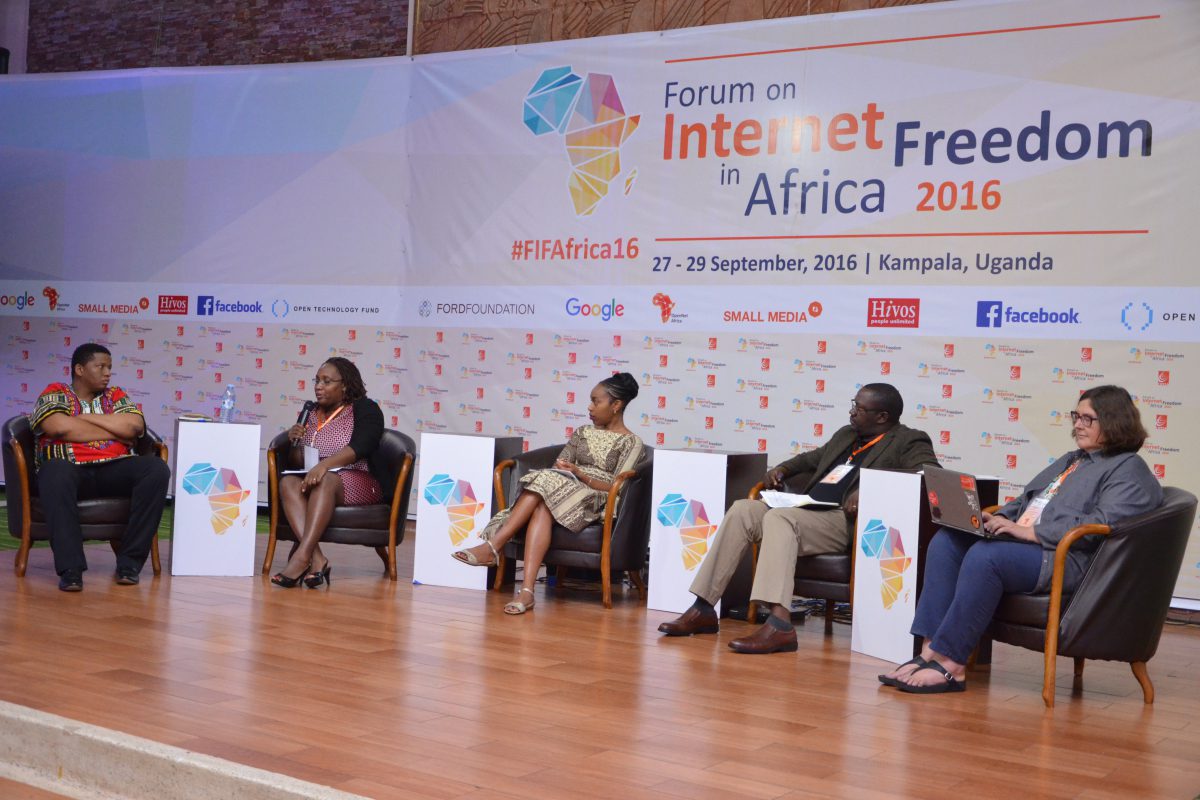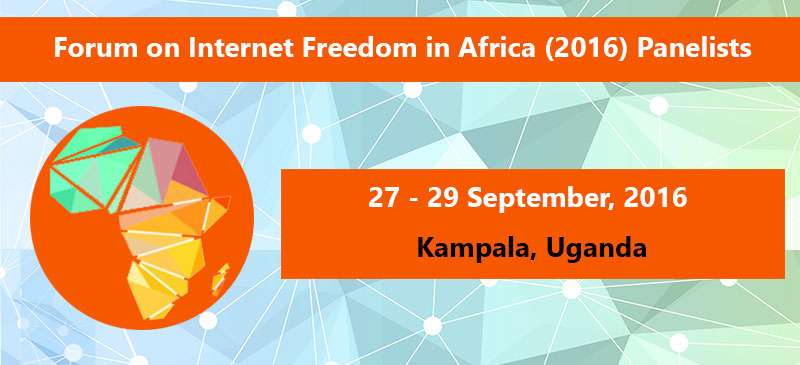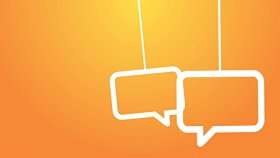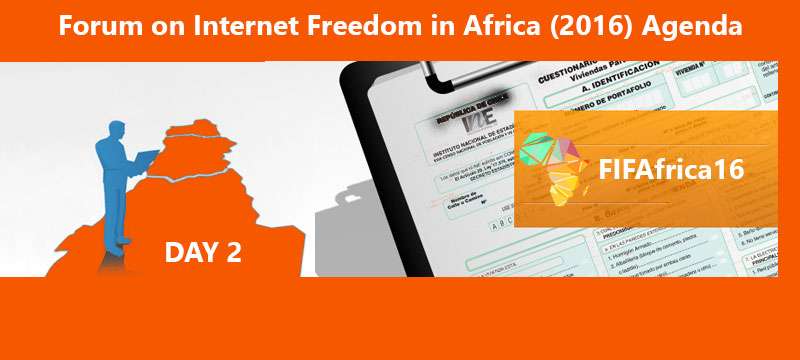By Kofi Yeboah|
There are many users of internet based platforms, like Facebook and Google, who are unaware of the existence of the terms and conditions that are available on the platform websites for users to familiarise themselves with and understand. The terms and conditions outline what is expected of both parties in agreement and also what both parties can and cannot do including with private data. Whose responsibility is it to popularise these often long policies to users?
This question was one of the most debated and discussed at the just ended Forum on Internet Freedom in Africa 2016 (FIFAfrica16) which was organised by the Collaboration on International ICT Policy for East and Southern Africa (CIPESA). Sharing of user data by internet based firms, either upon request by particular governments or other entities has become one of the most worrying factors for many internet users. Users of social media platforms do not entirely have control over who has access to their data, neither do they always have an understanding of the privacy policy associated with using these platforms.
As part of the panel discussion on transparency and accountability of intermediaries at#FIFAfrica16, Ebele Okobi, Head of Public Policy, Africa, Facebook, stated that “terms of service are the main mechanism used by companies to communicate with customers. Read them”. In other words, it is the responsibility of the user to read and understand what the terms of service say. However, most users do not read the terms of service “before clicking accept” and as pointed out by Anriette Esterhuysen of the Association for Progressive Communications (APC), firms hide behind that user ignorance to achieve their strategic goals at the detriment of user privacy.
Do Terms of Service Govern the Relationship?
“Terms of services do not govern the relationship between users and the company,” noted Ms. Okobi. She added that terms of service are the mechanism by which companies communicate with their users on the product. This implies that a firm can take an action that will affect a user with or without his/her permission.
What can be done?
Terms of services need to be in clear language and displayed boldly for users to read and understand. Internet-based firms should also consciously create awareness about the importance of reading the terms of services and also interpreting them to users. The firms should take the first step in explaining to users what the terms of services actually mean and what are they agreeing to for using the products. Terms of service should be simplified for users to understand the risks involved in signing up onto a platform and also outline how their data will be collected and used.
Meanwhile, users need to understand the rights they are giving up to internet-based firms when they check the “I agree” box on terms of service. On an ongoing basis, companies need to communicate with users to help understand why they need to collect their information and assure them the data being collected will be secured and not shared with third parties without their consent.
This article was first published at kofiyeboah.com on October 10, 2016.
Digital Security Clinics @ #FIFAfrica16
- Ask a question about a digital security concern
- Pick up software that can help improve your digital security
- Get help with an existing problem and let us triage your device
Forum on Internet Freedom in Africa 2016 Panelists
We have an exciting line up of panelists from over 46 organisations from across Africa and beyond! See who they are, where they are from and what they do. Be sure to connect with them too and join the conversation on #InternetFreedom in Africa using the #FIFAfrica16 hashtag. Follow @cipesaug for updates.
Forum Panelists
[search_live]
Strengthening Africa’s Conversation and Actions on Internet Freedom
By Juliet Nanfuka |
The Collaboration on International ICT Policy for East and Southern Africa (CIPESA) with the support of Facebook, the Ford Foundation, Google, Hivos, Open Technology Fund (OTF) and Small Media will assemble an audience in Kampala, Uganda for the Forum on Internet Freedom in Africa 2016. Set to take place on September 27–29, the Forum has become a crucial convening for actors on online freedom of expression and association, and the free flow of information in Africa.
Panel discussions at this year’s Forum will explore the growing trend of internet shutdowns, the increasing presence of violence against women online, the intersection of open data and human rights, African frameworks that protect online rights and their conflicts with outdated laws, amongst others.
“Recent events across various African countries make the Forum as indispensable as it ever has been in discussing challenges to online rights and the opportunities for collaborative efforts by state and non-state actors to meaningfully protect and advance internet freedom on the continent,” says CIPESA Executive Director Dr. Wairagala Wakabi. “We are glad to be facilitating growing awareness of online rights in Africa and are keen to continue contributing towards building this awareness amongst different stakeholders.”
Indeed, one of the pre events at the Forum will be the training of journalists and human rights defenders on human rights and internet policy. The training will be hosted by CIPESA, together with Paradigm Initiative Nigeria (PIN) and the United Nations Office of the High Commissioner for Human Rights (OHCHR) in Uganda.
The Forum, set to coincide with the International Day for Universal Access to information (September 28), will also serve as an opportunity to delve into the current trends on access to information on the continent. In partnership with the Africa Freedom of Information Center (AFIC) and Office of the Prime Minister (Uganda), a public dialogue on access to information as a driver to achieving the 2030 Development Agenda and the Sustainable Development Goals (SDGs) will also be held.
A key highlight of the Forum since its inception is the launch of the annual State of Internet Freedom in Africa regional reports. Previous editions of this report have focused on seven African countries – Burundi, Ethiopia, Kenya, Rwanda, Tanzania and Uganda – with a stand-alone report produced on South Africa. This year’s report has been expanded to include 10 countries. The countries featured in the 2016 State of Internet Freedom in Africa report are Burundi, Democratic Republic of Congo, Ethiopia, Kenya, Rwanda, Somalia, South Sudan, Tanzania, Uganda, Zambia and Zimbabwe.
Dr. Wakabi adds, “Access to information and the state of internet freedom are closely interlinked. Countries with higher levels of information access tend to have more online liberties than those without, and they also generally have a healthier democratic culture. The power of public information, open data and a free and open internet should not be undermined if we are to achieve effective civic participation, respect for human rights, transparent, accountable and democratic governance, and realisation of the 2030 Development Agenda.”
The Forum serves as an opportunity to gather insights from the different stakeholders in the information society ecosystem towards promoting a free and safe internet, hence the key themes that emerge from the Forum are widely disseminated. The 2015 outcomes and recommendations were shared in spaces such as the Internet Governance Forum (Brazil), the Africa IGF (Cameroon) and the Stockholm Internet Forum, and in various national convenings.
The Forum has confirmed participants from at least 23 countries and speakers from over 46 organisations including the Berkman Klein Center for Internet & Society at Harvard Law School, Panos Institute Southern Africa, BudgIT (Nigeria), Article 19 (Kenya), Digital Society of Zimbabwe, the Web Foundation, Association for Progressive Communications (APC), iAfrikan, Namibia Broadcasting Corporation (NBC), Access Now, Kenya ICT Action Network (KICTANET), National Information Technology Agency (NITA) Ghana, and Research ICT Africa. Others include Hivos, Nation Media Group, Africa Media Institute, Media Institute of Southern Africa Zimbabwe Chapter, Freedom of Expression Institute (FXI), Privacy International (PI) , Uganda Police, Zambia Police Service, University of Malawi, Communications Regulators Association of Southern Africa (CRASA) and the Ministry of Information, Communications and National Guidance (Uganda).
Follow the conversation at #FIFAfrica16.
#FIFAfrica16: Agenda – Day 2
#FIFAfrica16 | See what we have lined up for the Forum on Internet Freedom in Africa 2016. On 29 September, there will be a series sessions and the launch of the State of Internet Freedom in Africa 2016 report.





